SUSTAINABILITY - WHAT'S IT TO YOU?
We had a young person come in and do PLP work experience. We asked her to write a story about an issue that she is passionate about. Here's her story!
**Ideas, words and posters in this piece were created by Riley, a student on PLP Work Experience at YACSA**
THE INTRO
You’ve probably heard other people (news reporters, parents, teachers and the occasional friend) talking about our world and what’s wrong with it. From discrimination and equality to climate change, economic crisis and Donald Trump, there’s a wide range. One thing that doesn’t get talked about (a lot) is sustainability.
Sustainability is the act of sustaining something, or being able to keep the quantity of something at the same level. Sustainability can be divided into 3 categories; Economical (how it affects business, mainly jobs and employability), Social (the legislation of human health protection, e.g. from pollution, and its awareness) and Environmental (protecting the environment, e.g. trees or natural resources we use to survive).
Source: U.S. Environmental Protection Agency
THE GOAL
Now for some of the, somewhat boring stuff, the United Nations Conference on Sustainable Development discussed and developed a set of 17 goals. The goals grew out of the Millennium Development Goals which declared success in reducing global poverty but still acknowledging there was a lot more work to do.
Some of the goals are:
Sustainability including the health of land, air and sea.
Ending poverty and hunger.
Sustaining economic growth while promoting jobs and stronger economies.
You might be wondering why this would matter. Well, sustainability is a problem now, and has been a problem for a while now. As the future of humanity, we need to tackle every global problem individually and immediately. If nothing is done, our resources will die out e.g. electricity, food, water, oil and gas, coal and trees. We should focus on the bettering of world so we, as a species, and other species can continue to live before it’s too late.
SO WHAT CAN OUR GOVERNMENTS SO RIGHT NOW?
Here are the details on 4 systems or plans that have changed how we take care of our planet.
Plastic Bags pollute the environment, endanger animals, and litter our communities. So, some governments have banned the bags. For example, Queensland’s government has decided to minimise litter and pollution, while reducing the impact on wildlife. They’ve banned the supermarket bag. Now, shoppers are recommended to keep reusable bags, instead of single-use bags, in their car as preparation because they’re going to need them when they shop.
Sweden’s also making a change with their recycling revolution. They sort their waste in 10 ways: combustible (the things that catch fire easily e.g. toothbrushes or dog poop), food waste, glass, plastic packaging, paper packaging, metal packaging, papers and electronic waste. They also have hazardous waste and then landfill bins for anything left over. They’ve managed to recycle 99% of household waste and 50% of all their rubbish is also burnt into energy.
South Australia’s plan of attack has been happening for over 40 years now, and it all begins with 10 cents. The idea is that every time someone brings a can or bottle to be deposited, they receive 10 cents. If the container can be deposited, companies are to put a 10¢ on the label or bottle itself. People collect all their bottles overtime then bring them in for their cash reward. Around 580 million containers are collected every year. So, SA turns away 80% of the recyclables from landfill meaning they have the lowest amount of drink containers mixed with litter in the country (only 2.9%).
One of the leading countries in clean energy is Iceland. They’ve come a long way since the 1970s, when they mainly relied on fossil fuels. Iceland focuses on hydro energy, which uses water to make energy, and geothermal energy, which is energy in the form of heat captured from the steam or hot water in the ground. The country now relies purely on domestic renewable energy sources.
AND WHAT CAN WE DO, RIGHT NOW?
Here are 21 things we can do to keep our homes sustainable. Then, from our homes we can build up to our communities, suburbs, cities and states, until finally we reach global sustainability.
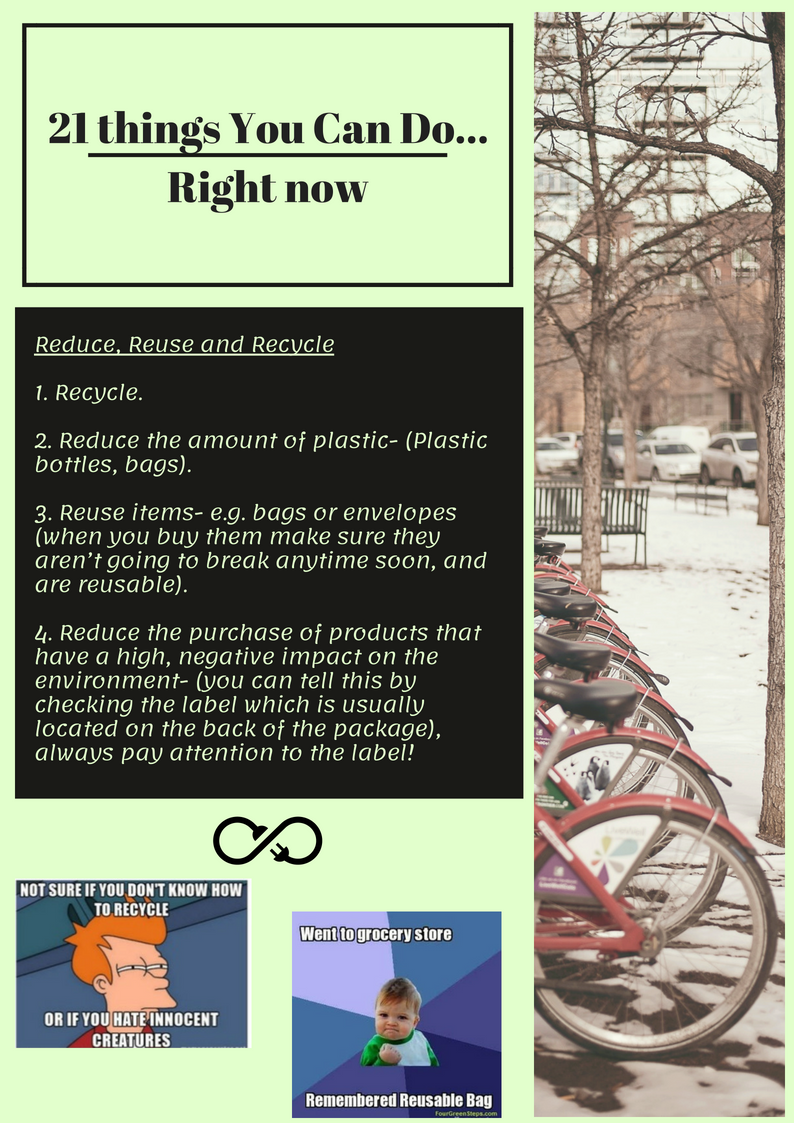
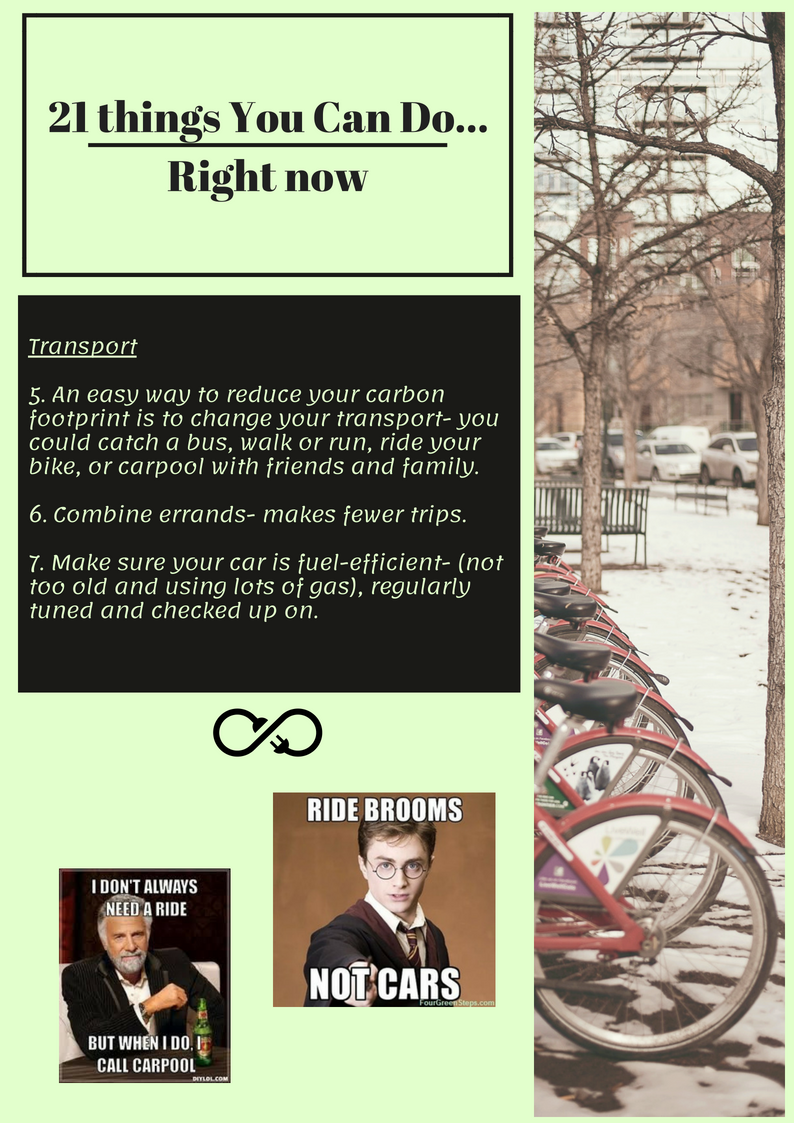
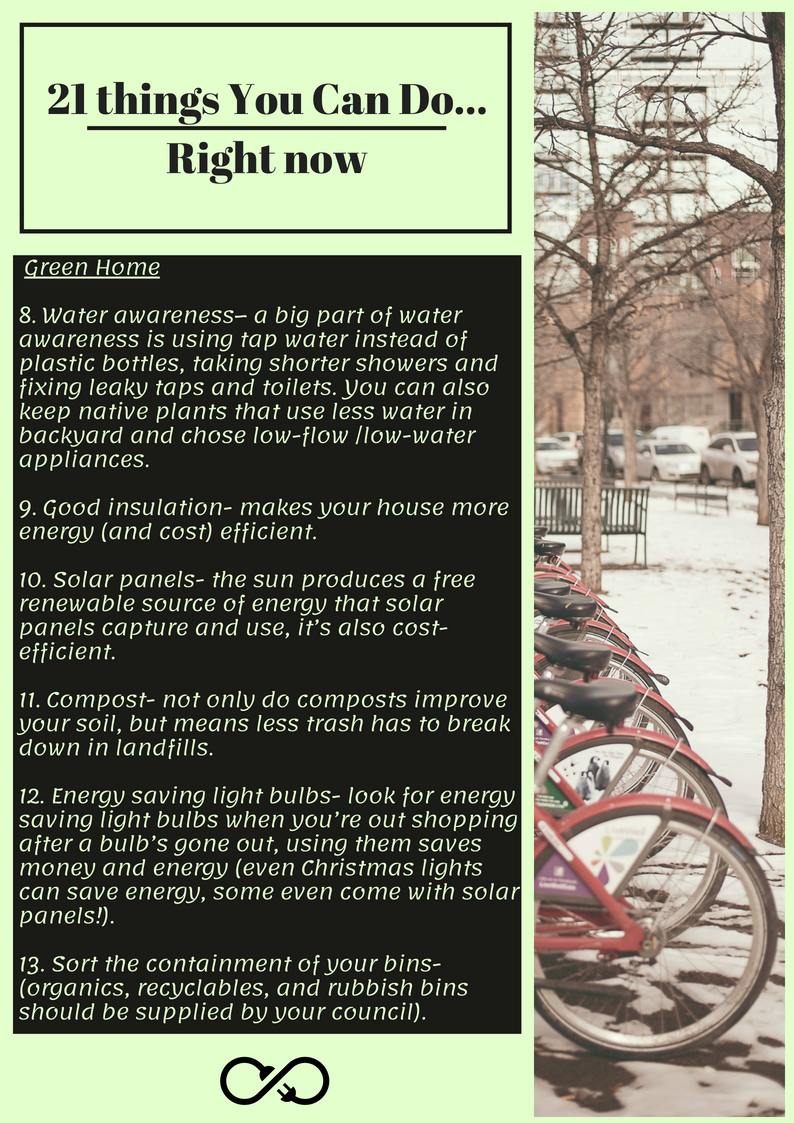
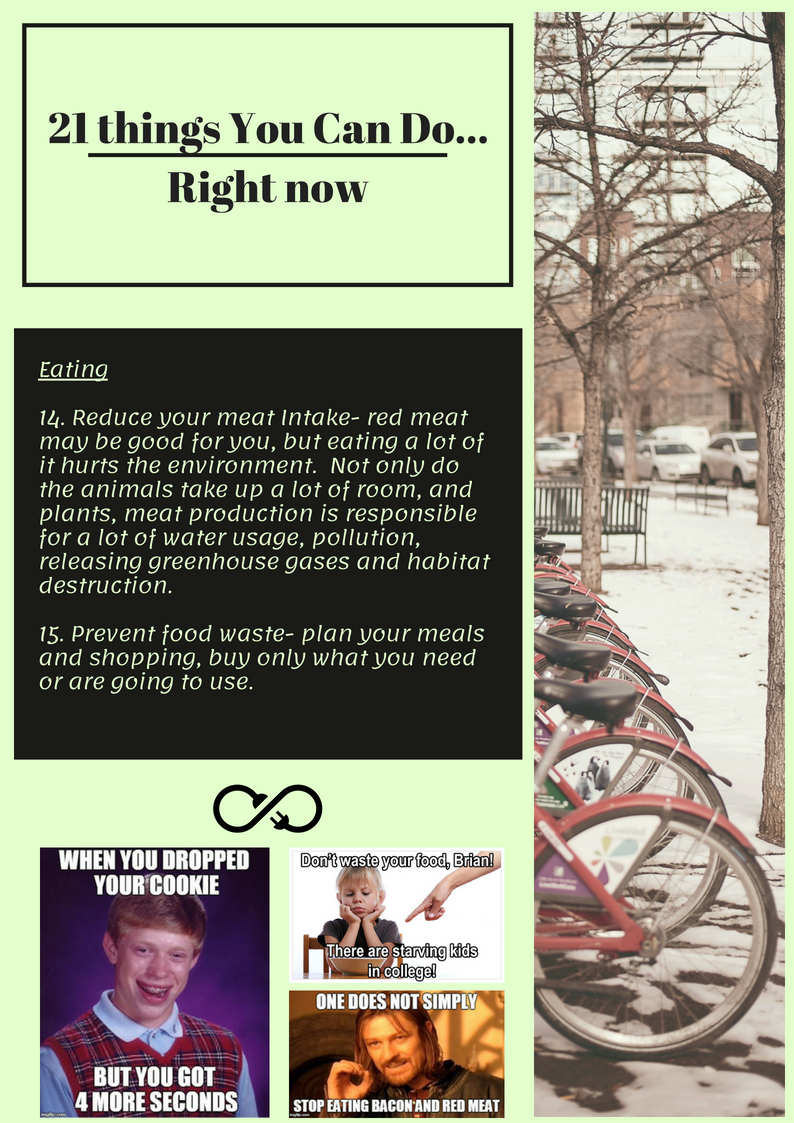
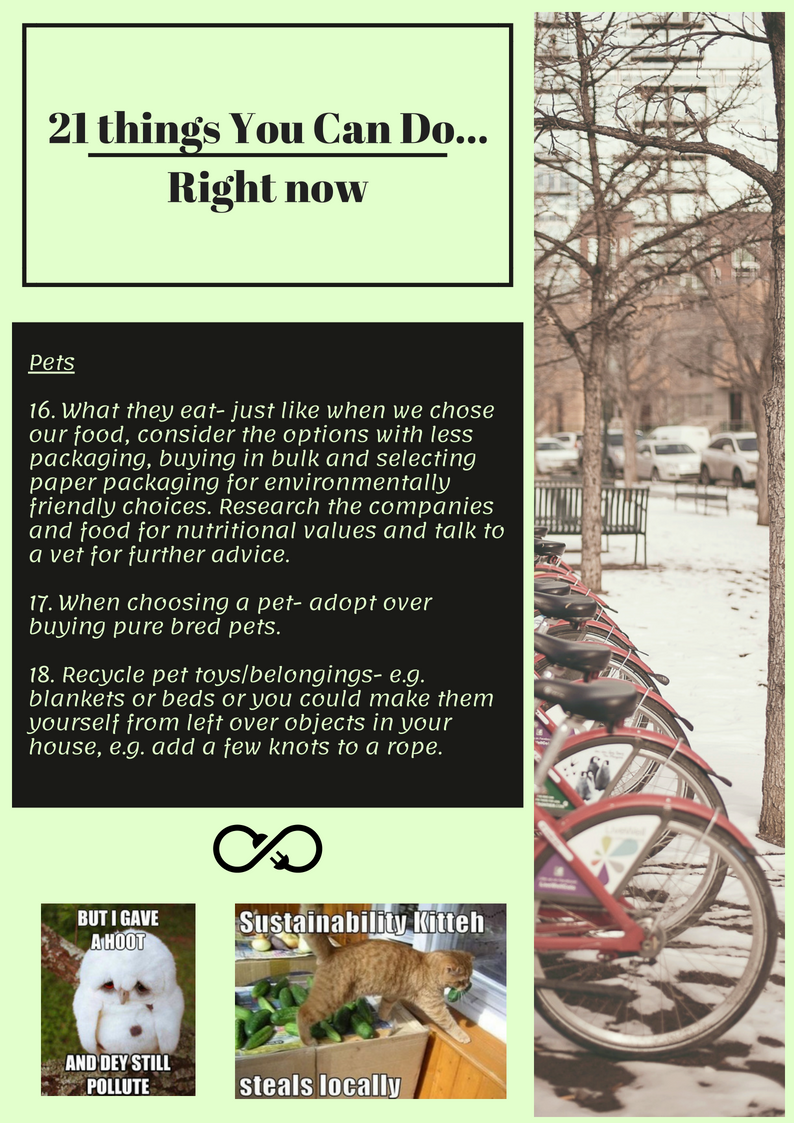
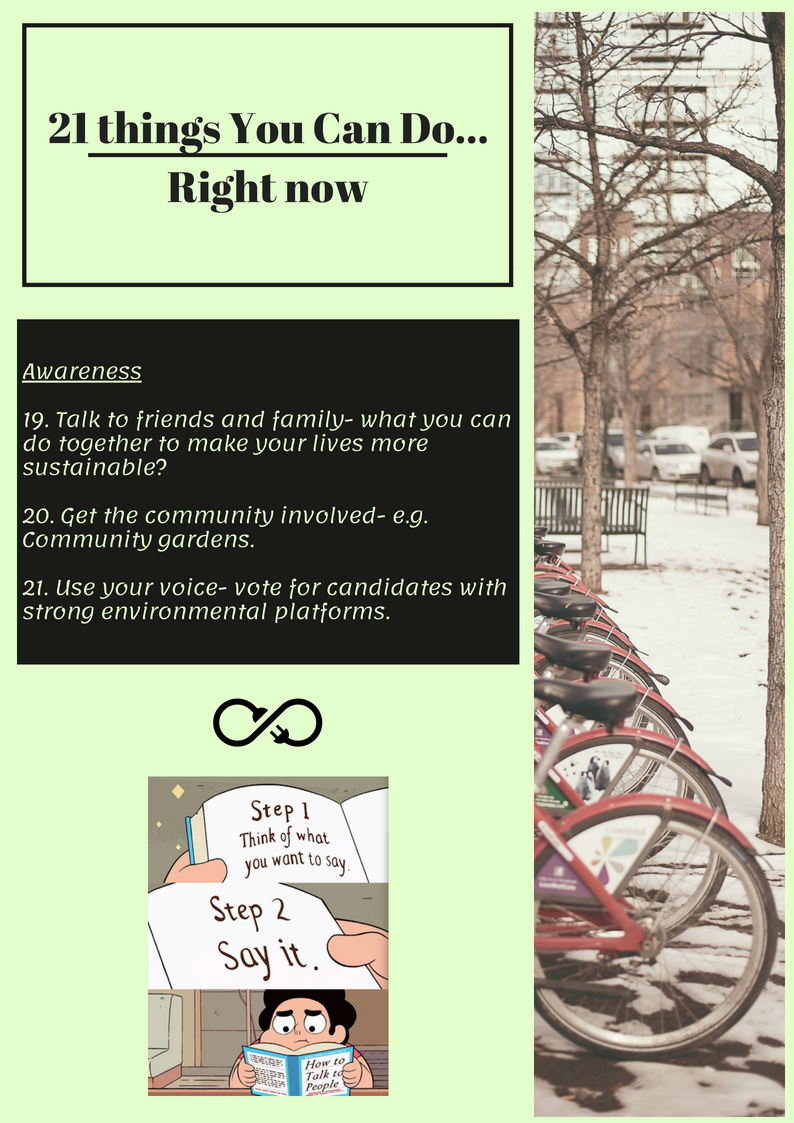
WANT TO KNOW MORE?
Here are some useful links!
http://www.thegoodshoppingguide.com/funniest-sustainability-memes-part1/
https://www.pawshake.com.au/blog/sustainability-and-pet-ownership
https://www.ehp.qld.gov.au/assets/documents/pollution/management/waste/plastic-bag-ban-factsheet.pdf
https://www.affarsverken.se/Documents/Renhallning/Sorteringsguiden/Sorteringsguide_engelsk.pdf
https://unchronicle.un.org/article/iceland-s-sustainable-energy-story-model-world


